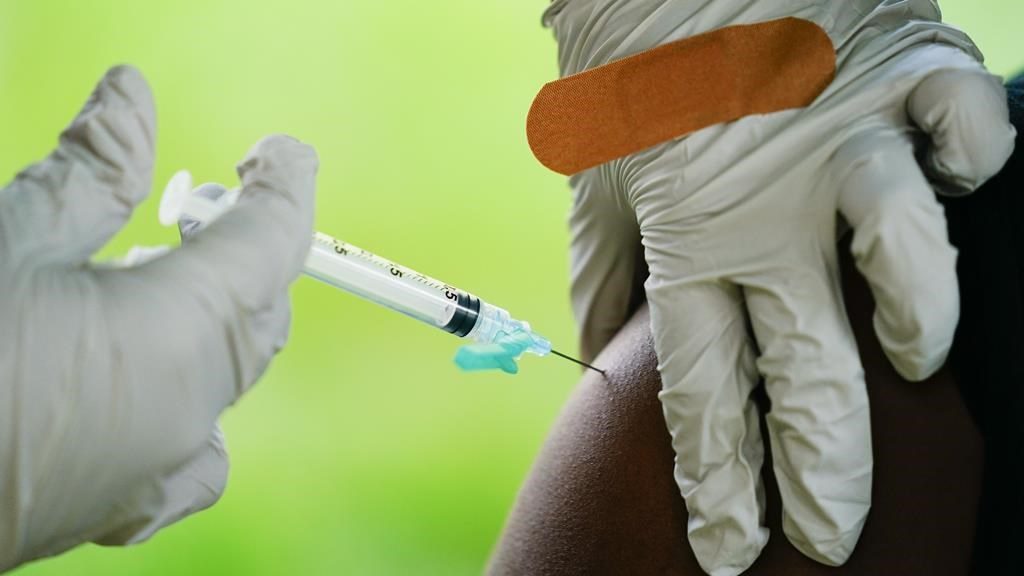Business Highlights
Posted Jan 15, 2021 06:09:20 PM.
Last Updated Jan 15, 2021 06:12:06 PM.
Extremists exploit a loophole in social moderation: Podcasts
NEW YORK (AP) — Major social platforms have been cracking down on the spread of misinformation and conspiracy theories in the wake of the Jan. 6 riot at the Capitol. But Apple and Google, among others, have left open a major loophole: podcasts. Major tech platforms are still highlighting podcasts that let you tune into the world of the QAnon conspiracy theory and other accounts banned on social media. Such conspiracy theorists have peddled stolen-election fantasies, coronavirus conspiracies and violent rhetoric. Experts say podcasts play an outsized role in propagating white supremacy. Some podcasters have been banned from Google’s YouTube, but continue to publish on major podcast platforms.
___
Optimistic banks start moving ‘bad’ loans back to ‘good’
CHARLOTTE, N.C. (AP) — The financial performance of the big U.S. banks has improved from earlier in 2020, when the virus pandemic walloped the global economy. JPMorgan and Wells Fargo saw fourth quarter profits rise; Citigroup’s profit fell in the last quarter of 2020, but increased from the third quarter. The three banks have a more positive, though cautious outlook for the economy, which was reflected in an accounting manoeuvr each employed that contributed significantly to the their better results.
___
Trump backers seek online refuges after big tech backlash
WASHINGTON (AP) — Online supporters of President Donald Trump are scattering to smaller and more secretive social media platforms. They’re fleeing what they say is unfair treatment by Facebook, Twitter and other big tech firms who have tried to squelch violent threats and misinformation after the deadly siege at the U.S. Capitol on Jan. 6. Experts say those efforts could send some of Trump’s fiercest supporters to the internet’s dark spaces where conspiracy theories and violent rhetoric run rampant. Already, Trump supporters and causes that have been kicked off Facebook and Twitter are gaining an audience on lesser-known sites such as Gab, Telegram and MeWe.
___
Stocks fall as economic pain deepens, rally runs out of gas
NEW YORK (AP) — Wall Street closed out its first losing week in three with another drop after reports showed the pandemic is deepening the hole for the economy, as Washington prepares to throw it another lifeline. The S&P 500 fell 0.7% Friday, with stocks of companies that most need a healthier economy taking some of the sharpest losses. Treasury yields also dipped as reports showed shoppers held back on spending during the holidays and are feeling less confident. Stocks have run out of steam since setting a record a week before on optimism that COVID-19 vaccines and more stimulus from Washington will bring an economic recovery
___
U.S. retail sales fell in December for 3rd straight month
NEW YORK (AP) — Americans cut back on spending in December for the third-straight month as a surge in virus cases kept people away from stores during the critical holiday shopping season. The Commerce Department said retail sales fell a seasonally adjusted 0.7% in December from the month before, a decline Wall Street analysts weren’t expecting. Sales also fell in October and November, even as retailers tried to get people shopping for Christmas gifts early by offering deals before Halloween. The unexpected decline underscores the economy’s troubles as the pandemic has worsened this winter. Employers shed jobs last month for the first time since April. And layoffs appear to be continuing, as the number of people seeking jobless benefits jumped last week to the highest level since August.
___
US industrial production jumps 1.6% in December
SILVER SPRING, Md. (AP) — U.S. industrial production rose 1.6% in December, a third straight monthly gain, but remains below its pre-pandemic level. The Federal Reserve reported Friday that the December gain in industrial output followed a 0.5% increase in November and a 1% increase in October. Even with those gains, industrial output is still about 3.3% below its level in February before the pandemic hit. Manufacturing increased 0.9% while mining production rose 1.6%. Utilities’ output rose 6.2% as a rebound in December demand followed unseasonably warm weather in November. U.S. industry operated at 74.5% of capacity in December, still below the pre-pandemic levels.
___
Retail group: holiday sales up 8.3% amid big spending shift
NEW YORK (AP) — The nation’s largest retail trade group said holiday sales soared 8.3%, far exceeding its forecast even as the coronavirus kept shoppers away from physical stores. The National Retail Federation had expected growth in a range of 3.6% to 5.2% for the November and December period compared to the year-earlier period. The outsized gains show how the pandemic has caused a major shift in spending away from restaurants and travel and more toward buying goods that focus on activities around the home like home furnishings and food. That trend has benefited retailers. The retail sales figures exclude sales from auto, restaurants and gas.
___
The S&P 500 fell 27.29, or 0.7%, to 3,768.25. The Dow Jones Industrial Average lost 177.26, or 0.6%, to 30,814.26, and the Nasdaq composite dropped 114.14, or 0.9%, to 12,998.50. The Russell 2000 index of small-cap stocks lost 32.15, or 1.5%, to 2,123.20.
The Associated Press










